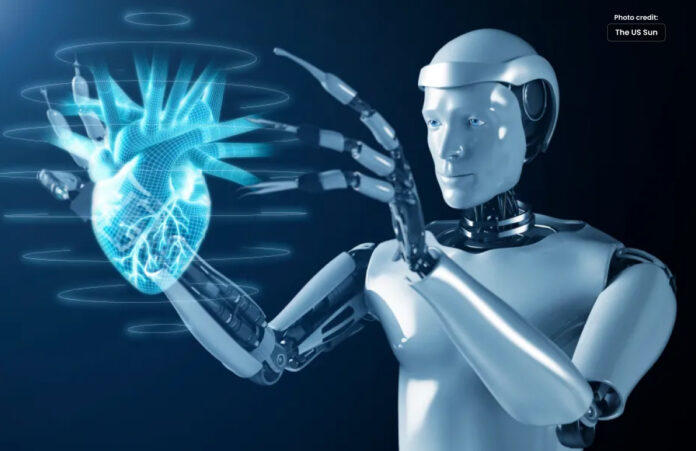ROBO-DOC World’s first AI hospital unveiled in China with robot doctors.
ROBO-DOC, the world’s first AI hospital launched in China with robot doctors who can treat 3,000 patients daily and save millions.
In the world’s first AI hospital launched in China, robot doctors can treat 3,000 patients daily. The virtual hospital dubbed the “Agent Hospital,” could save “millions” thanks to its autonomous interactions.
Tsinghua University in Beijing is developing an AI hospital, and it aims to be operational by the second half of 2024 due to its cutting-edge technology.
Read More Informative Articles in Urdu
After six months of study and development, the hospital is almost ready for real-world use, where it will revolutionize medical professionals’ approaches to patient diagnosis and care.
According to Liu Yang, the head of the Agent Hospital’s research team, the AI hospital will have a huge positive impact on the public’s health and that of medical professionals.
AI doctors can treat up to 10,000 patients within a few days because of its self-evolving virtual environment and capacity.
In comparison, it would take a human doctor at least two years to reach the same numbers.
AI doctor agents have already demonstrated an amazing 93.06 percent accuracy rate on the MedQA dataset (questions from the US Medical Licensing Exam) in tests carried out by Chinese researchers.
The virtual medical experts were able to replicate every step of patient diagnosis and treatment for common respiratory illnesses.
This covered the processes of examination, diagnosis, therapy, and follow-up. All medical professionals, nurses, and patients in the virtual environment will be guided by intelligent agents with large language models.
AI Doctors
The role details for AI doctors can potentially be “infinitely expanded”. Currently, there are 14 physicians and 4 nurses available to handle patient demand.
The four nurses are not equipped to diagnose illnesses or create comprehensive treatment programs, but the 14 doctors are.
By integrating the AI hospital into the actual world, more opportunities for medical students to receive training can be offered.
They can practice in a risk-free setting by offering treatment recommendations without worrying about hurting actual patients.
It will eventually result in the development of “highly-skilled doctors,” Liu claims.
Online telemedicine services can be offered when the roles are reversed, with virtual doctors treating actual patients.
The claim is that this would enable AI physicians to manage thousands, if not “millions,” of cases.
According to Liu, the AI hospital can even forecast how infectious diseases would emerge, spread, and be controlled in a given area.
Providing the general people with accessible healthcare is another driving force behind the AI hospital.
When AI physicians’ diagnostic skills are applied in the real world, superior, cost-effective, and practical healthcare services will follow.
But it comes with a lot of difficulties, just like any new concept.
Strict adherence to national medical rules is necessary to guarantee that AI technology does not represent a risk to public health.
Furthermore, it is crucial to thoroughly validate technological maturity and investigate strategies for collaborating between AI and humans.
Also Read this: A robot implanted a chip in a patient’s brain in Saudi Arabia




